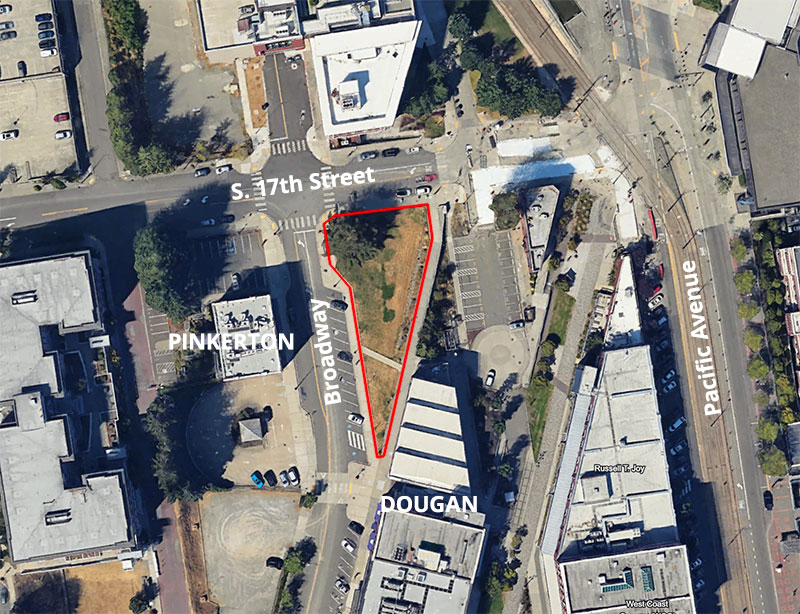Main Content
Why we're building a micro-forest on the UW Tacoma campus
Like many cities in the Puget Sound region, Tacoma experiences higher-than-average ambient air temperatures and diminished air quality due to scant urban tree canopy. A lack of trees is correlated to poor health and diminished ecosystems, while the benefits of living and being near trees are far-reaching and abundant. A robust tree canopy captures carbon pollution, mitigates heat, and enhances mental and physical health.
Afforestation is a helpful method of restoring or creating stands of trees or forest in places and sites where urban tree canopy has been lost or has never existed.
At the University of Washington Tacoma, we are working to support our region's efforts to grow and improve our tree canopy as a matter of public health, environmental sustainability, and urban environmental justice through the creation of a micro-forest, a vital ecosystem.
Managed Landscapes and Downtown Tacoma
People, cultures, and places have always intersected in impactful and meaningful ways through the management of land and landscapes. This is true whether planting for food, medicine or for the beautification of our spaces.
Tacoma's downtown and the UW Tacoma campus are sited on the traditional home and lands of the Puyallup people whom, with other Coast Salish people, tended to these lands. Until about 120 years ago, this area was abundant in conifers and camas (Camassia/caid or cabidac in Lushootseed). This was also the site of a thriving timber industry that lasted through the early 1900s. While some of these histories are well documented and remain visible in the day-to-day, some are not. UW Tacoma's micro-forest will help center these histories and ways with land.
A section of the micro-forest will feature a camas prairie, an important managed landscape for Coast Salish people. The micro-forest will be afforested using a method that originates in Japan, the Miyawaki method.
Purpose
As a managed landscape, the UWT micro-forest will serve a number of interrelated purposes:
- An educational and experimental space where researchers, faculty, and students can learn about environmental sustainability
- To help the City and community reach its tree canopy goals to address widespread tree canopy disparities in the city, particularly in the downtown core
- A demonstration site, showing neighbors what they can do in their own spaces to help us grow our urban tree canopy
- A quality public space that brings the university community and neighbors together
- Center histories that have been erased or partly told, particularly those of the Puyallup people and the Japanese community that once thrived in downtown Tacoma

Get involved
This project is a collaboration between the University of Washington Tacoma, Urban@UW, Tacoma Tree Foundation and the City of Tacoma's Urban Forestry Program.
Once established, the micro-forest will serve as an educational and research space, a community public space, and a model for what you can do in your own spaces.
